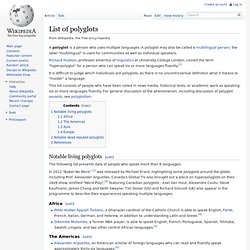

Raw Story » Scientists make mice learn tasks faster by splicing human brain gene into their DNA. Although it’s far from the sort of brain transplant beloved by science fiction enthusiasts, scientists have taken one step in that direction: they have spliced a key human brain gene into mice.

In the first study designed to assess how partially ‘humanizing’ brains of a different species affects key cognitive functions, scientists reported on Monday that mice carrying a human gene associated with language learned new ways to find food in mazes faster than normal mice. By isolating the effects of one gene, the work sheds light on its function and hints at the evolutionary changes that led to the unique capabilities of the human brain. For the study, scientists used hundreds of mice genetically engineered to carry the human version of Foxp2, a gene linked to speech and language. In a 2009 study, mice carrying human Foxp2 developed more-complex neurons and more-efficient brain circuits.
It was only when mice could use both learning techniques that those with the human brain gene excelled.
List of polyglots. A polyglot is a person who uses multiple languages.

A polyglot may also be called a multilingual person; the label "multilingual" is used for communities as well as individual speakers. Richard Hudson, professor emeritus of linguistics at University College London, coined the term "hyperpolyglot" for a person who can speak six or more languages fluently.[1] It is difficult to judge which individuals are polyglots, as there is no uncontroversial definition what it means to "master" a language. This list consists of people who have been noted in news media, historical texts, or academic work as speaking six or more languages fluently. For general discussion of the phenomenon, including discussion of polyglot savants, see polyglotism. Notable living polyglots[edit] The following list presents data of people who speak more than 6 languages.
In 2012 "Babel No More" [2] was released by Michael Erard, highlighting some polyglots around the globe, including Prof. Africa[edit] The Americas[edit] Is it Bad to Learn Two Languages At Once? I’ve asked myself this same question when I was learning both Esperanto and Spanish at the same time (and a little bit of Dutch).

While I don’t have any scientific proof, I can talk about this topic from experience and what I’ve seen from polyglots in the community. Think about this for a moment. Have you ever attempted to learn two things at once? For example, learning the piano and how to draw. It’s very easy to do. You might say, “well languages are too similar.” When I think and speak in Esperanto, I feel totally different than when I am speaking Spanish. How the Brain Sorts Out Speech Sounds - NIH Research Matters. February 10, 2014 By placing tiny sensors directly atop brain tissue, scientists were able to pinpoint sets of neurons that responded to particular sounds when patients listened to sentences.

The finding offers insight into how our brains process heard words and may also provide clues to dyslexia, autism, and other language-related disorders. Video showing the electrical patterns created in the superior temporal gyrus upon listening to the sentence, “And what eyes they were.” Courtesy of UCSF. Scientists have long recognized the brain areas that help us detect and make sense of the many sounds around us. To take a closer look, a team led by Dr. The scientists analyzed neural activity while the volunteers listened to a series of 500 unique sentences spoken by 400 different men and women.
The researchers found that speech-responsive sites were centered in the superior temporal gyrus (STG), a brain region known to play a role in decoding speech. —by Vicki Contie.